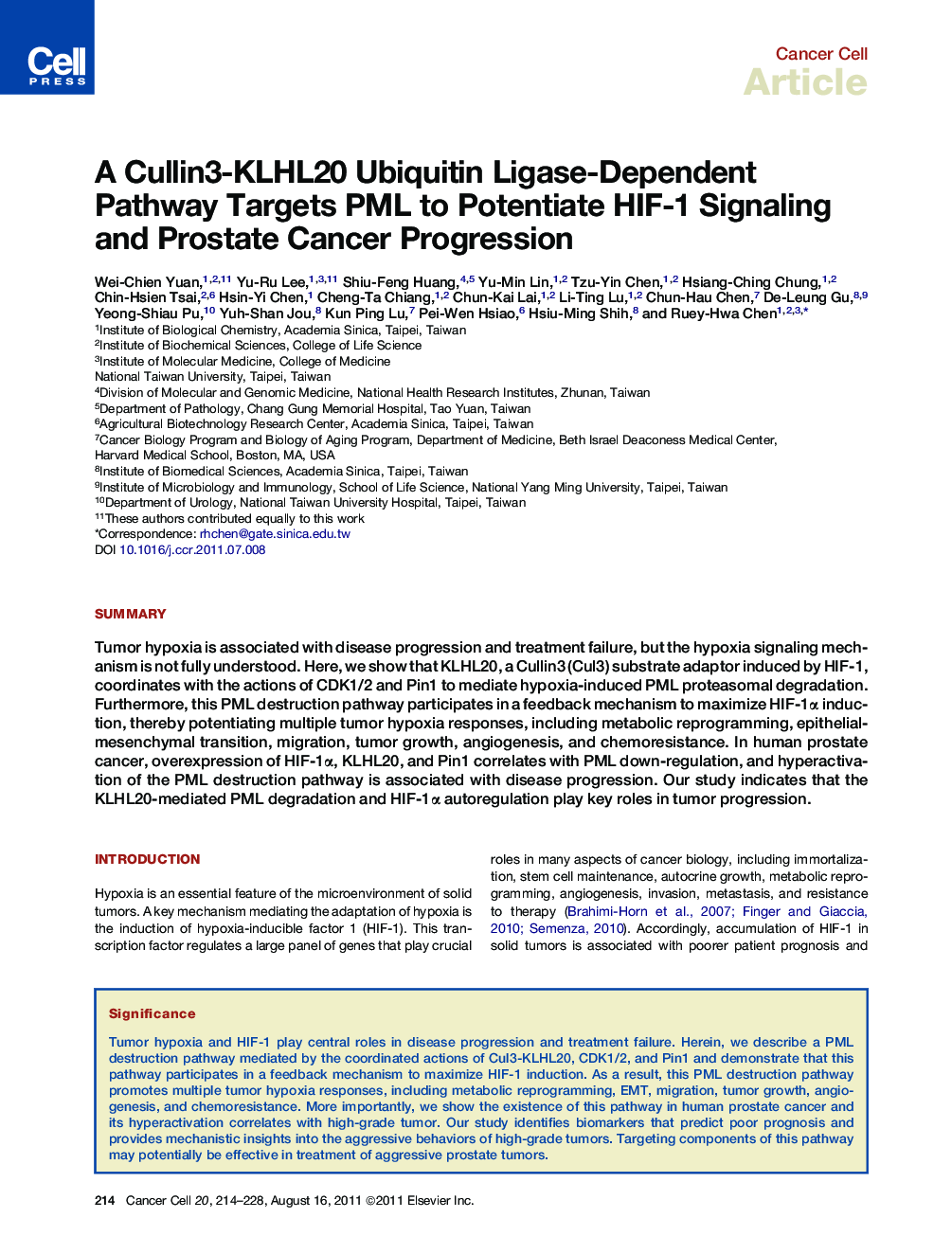| Article ID | Journal | Published Year | Pages | File Type |
|---|---|---|---|---|
| 2107477 | Cancer Cell | 2011 | 15 Pages |
SummaryTumor hypoxia is associated with disease progression and treatment failure, but the hypoxia signaling mechanism is not fully understood. Here, we show that KLHL20, a Cullin3 (Cul3) substrate adaptor induced by HIF-1, coordinates with the actions of CDK1/2 and Pin1 to mediate hypoxia-induced PML proteasomal degradation. Furthermore, this PML destruction pathway participates in a feedback mechanism to maximize HIF-1α induction, thereby potentiating multiple tumor hypoxia responses, including metabolic reprogramming, epithelial-mesenchymal transition, migration, tumor growth, angiogenesis, and chemoresistance. In human prostate cancer, overexpression of HIF-1α, KLHL20, and Pin1 correlates with PML down-regulation, and hyperactivation of the PML destruction pathway is associated with disease progression. Our study indicates that the KLHL20-mediated PML degradation and HIF-1α autoregulation play key roles in tumor progression.
Graphical AbstractFigure optionsDownload full-size imageDownload high-quality image (121 K)Download as PowerPoint slideHighlights► The HIF-1-inducible KLHL20 mediates hypoxia-induced PML proteasomal degradation ► Targeting PML to KLHL20 requires PML modifications by CDK1/2 and Pin1 ► The KLHL20-PML pathway is part of a feedback mechanism to amplify HIF-1 signaling ► Hyperactivation of the KLHL20-PML pathway correlates with high-grade prostate tumors
